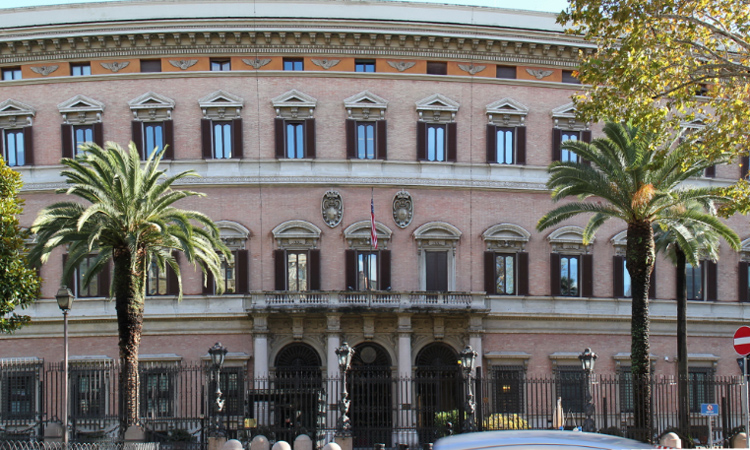American embassies in Europe have reportedly sent letters to European companies telling them to comply with President Trump’s executive order banning DEI practices. Multiple outlets have confirmed that French companies contracting with the U.S. government have received a questionnaire from the American embassy in Paris titled “Certification Regarding Compliance With Applicable Federal Anti-Discrimination Law,” and that multiple U.S. embassies beyond France have sent out the communication as well.
“Department of State contractors must certify that they do not operate any programs promoting DEI that violate any applicable anti-discrimination laws and agree that such certification is material for purposes of the government’s payment decision and therefore subject to the False Claims Act,” the document reads. The False Claims Act imposes liabilities on federal contractors who defraud the American government.
The letters mark a significant expansion of the Trump administration’s DEI crackdown, which most recently has taken the form of a Federal Communications Commission investigation into Disney. The federal agency’s chairman, Brendan Carr, sent a letter to Disney CEO Bob Iger on Thursday, stating that he wanted to “ensure that Disney and ABC have not been violating FCC equal employment opportunity regulations by promoting invidious forms of DEI discrimination.”
The move also comes as the Trump administration continues to ratchet up political tensions with the European Union. “The European Union was formed in order to screw the United States. That’s the purpose of it, and they’ve done a good job of it,” the president told reporters last month. On Wednesday, the White House announced 25% tariffs on imports of finished cars and automotive components starting on April 3rd, forcing the EU’s export-oriented car companies to make smaller discounts and increase prices generally in the coming months.
French media and government agencies have broadly condemned the Trump administration’s letter and overall trade policy. “US interference in the inclusion policies of French companies, just like the threats of unjustified tariffs, is unacceptable,” the country’s Ministry of Commerce said in a statement. Les Echos, the French business outlet that originally reported the letters, called them “a new form of extraterritoriality that is causing trouble in the business world.”












